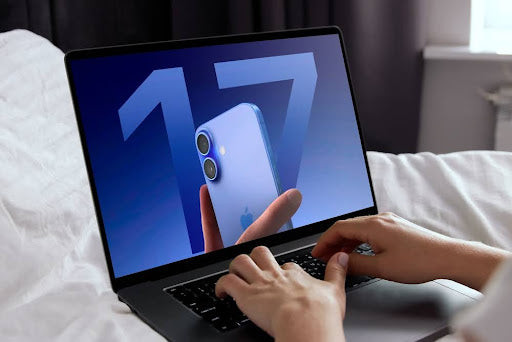Answers To Your 5G Questions
Welcome to the electrifying realm of 5G. From the mind-boggling speeds to the promises of a hyper-connected future, 5G has captured our imaginations and sparked a flurry of questions (and conspiracy theories) about what it is, what it does, whether it controls everything we do, you know...the usual.
Honestly though, we can’t blame people for having questions. It’s always good to question new things when they appear. But instead of falling into a wormhole of conspiracies, we’ll do our best to let you know the basics of 5G (and debunk the myths).

Uhhh...what is it?
5G is the fifth-generation mobile network. It “enables a new kind of network that is designed to connect virtually everyone and everything together including machines, objects, and devices.” The idea is that it will helps to do the following things:
- Deliver higher peak data speeds
- Provide a more reliable connection
- Allow for a much bigger network capacity
- Improve overall efficiency
Here’s a general timeline of the history of mobile network generations:
Are 5G phones more expensive?
Yes they are (for now). Since it costs so much money to build the systems and networks needed to have 5G, the costs end up trickling down to consumers. You’re paying a premium price for a premium experience. This isn’t to say that the prices won’t start to drop as 5G becomes more commonplace, but for now if you want a 5G phone you’ll have to be willing to pay for it.
Can 5G go through walls?
5G carries more data than 4G using shorter wavelengths, but at a shorter range. This means that physical barriers like walls and glass could block 5G signals, at least according to Commercial Integrator. This doesn’t mean that 5G won’t work inside your house, it just means that there are still some kinks to work out.
Are 5G SIM cards different?
You won’t need a new SIM card for a 5G phone! Your SIM card just registers your number to the network. It’s your actual device that matters when it comes to 5G. Now, will that change in the future? Who knows, really. But right now your SIM card doesn’t make a difference.
Does turning off 5G save battery?
Yes. 5G connects to incredibly fast networks, but it comes at the price of your battery. The good news is that you can turn off 5G using Smart Data Mode on your iPhone. It gives you three options:
- Always have 5G enabled
- Switch to LTE and never use 5G
- Let your iPhone make the decision using auto mode
Auto mode will let your iPhone choose when it needs faster speeds, like downloading large files, or when it can make do with LTE, like listening to music. If you are planning on using auto mode, just remember your battery will drain a bit faster if you’re constantly downloading since it will likely switch to 5G.
How much faster is 5G than 4G?
Where other aspects of 5G might be a bit difficult to wrap your head around, this part is pretty easy. 5G could reach speeds up to 20 times faster than 4G LTE. 20. TIMES. 5G, in theory, could see speeds of 20GB per second at peak speed. Thales Group even estimates 5G could be 100 times faster than 4G, but we’ll believe it when we see it.
Which iPhones support 5G?
If you’re looking for an iPhone that supports 5G, these are your options right now:
- iPhone 12 generation
- iPhone 13 generation
- iPhone SE (2022)
- iPhone 14 generation
It’s probably safe to assume that any iPhone made from here on out will support 5G, but obviously we can’t be sure.
It’s understandable why people are a bit skeptical about 5G. New things are always a bit intimidating. But if it’s anything like what it’s supposed to be, 5G could be a game-changing aspect of the mobile world.



